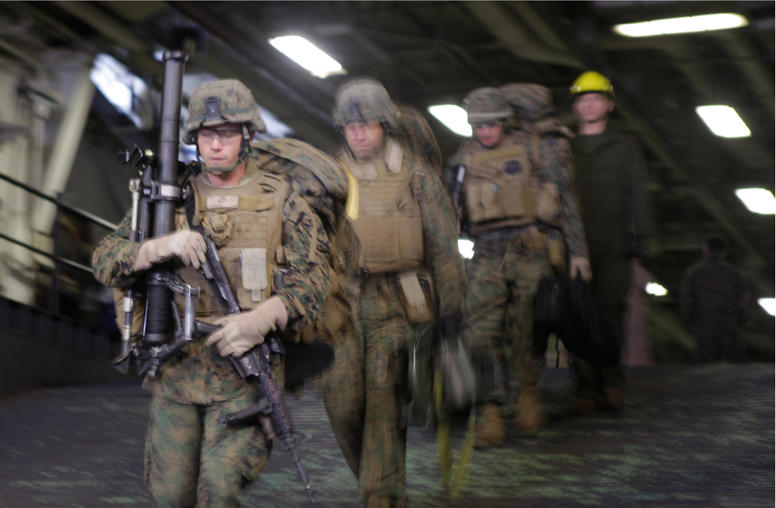Publications
Articles, publications, books, tools and multimedia features from the U.S. Institute of Peace provide the latest news, analysis, research findings, practitioner guides and reports, all related to the conflict zones and issues that are at the center of the Institute’s work to prevent and reduce violent conflict.
On the Issues: North Korea
One day after North Korea’s nuclear test drew widespread condemnation, the country on May 26th test-launched two more short-range missiles. This marks Pyongyang's second nuclear test, after its first in October 2006. Amid rising tensions on the Korean peninsula, South Korea joined the Proliferation Security Initiative, a U.S. initiative to curb the trade of weapons of mass destruction, an action North has called a declaration of war.
North Korea’s Currency Redenomination: A Tipping Point?
USIP’s John Park assesses what’s behind North Korea’s redenomination and its implications for the people and regime.
The Sinking of South Korea’s Naval Vessel
The Cheonan, a 1,200-ton South Korean naval vessel, sank on March 26 when an explosion split it apart in one of the country’s worst naval disasters. North Korea has officially denied involvement and accused South Korean President Lee Myung-bak of using this tragedy to bolster support for his hard-line North Korea policy.
On the Issues: North Korea’s Leadership Succession: The China Factor
USIP’s John Park outlines the development of China’s North Korea policy, and examines the implications of deepening Communist Party of China (CPC)-Workers’ Party of Korea (WPK) ties for this succession process and the U.S.’s North Korea policy.
Health and Migration Concerns Increase for the Future of North Korea
With the international community’s continued focus on North Korea’s nuclear weapons program, humanitarian concerns for the North Korean people remain largely overlooked. With this in mind, panelists met at the United States Institute of Peace on October 19th to discuss the state of North Korea’s healthcare system and the migration of North Koreans to China and South Korea.
Handling Conflict by Peaceful Means
USIP leaders explain the effect that events around the world and here at home will have on the U.S., and the contributions the Institute can and does make during a time of tremendous challenge – and opportunity.
On the Issues: The Fog of the Post-Kim Jong-il Period
John Park, a senior program officer who directs USIP’s Korea Working Group, analyzes the key policy issues arising from the sudden death of North Korean leader Kim Jong-il on December 17.
Analysts Laud U.S. Commitment to Asia
The Obama administration’s reaffirmation of American engagement in the Asia-Pacific region for strategic and economic reasons is welcome, but describing it as a “pivot” toward the region in the wake of U.S.-led wars in Iraq and Afghanistan neglects the continuity through decades of U.S. involvement in the region, three senior foreign policy figures from the United States, Japan and South Korea said at a forum sponsored by the United States Institute of Peace (USIP) on December 15.

Strengthening the Civilian-Military Link: USIP and Navy-Marine Corps Coordination
The role of the Navy and Marine Corps is critical to the growing importance of the Asia Pacific region in national security strategy. Recently, conflict management and peacebuilding experts from the U.S. Institute of Peace participated in the Navy’s biggest amphibious exercise in a decade, Bold Alligator, as part of USIP’s expansion of civilian-military cooperation and training.
The U.S.-North Korea “Exploratory” Meeting in New York: Why Now?
John Park, a senior program officer who directs the Korea Working Group, analyzes prospects for the July 28-29 U.S.-North Korea “exploratory” meeting in New York. After more than two years of “strategic patience” exercised by the United States in not rushing into negotiations with North Korea without its firm commitment to denuclearization, why is this bilateral meeting taking place now?